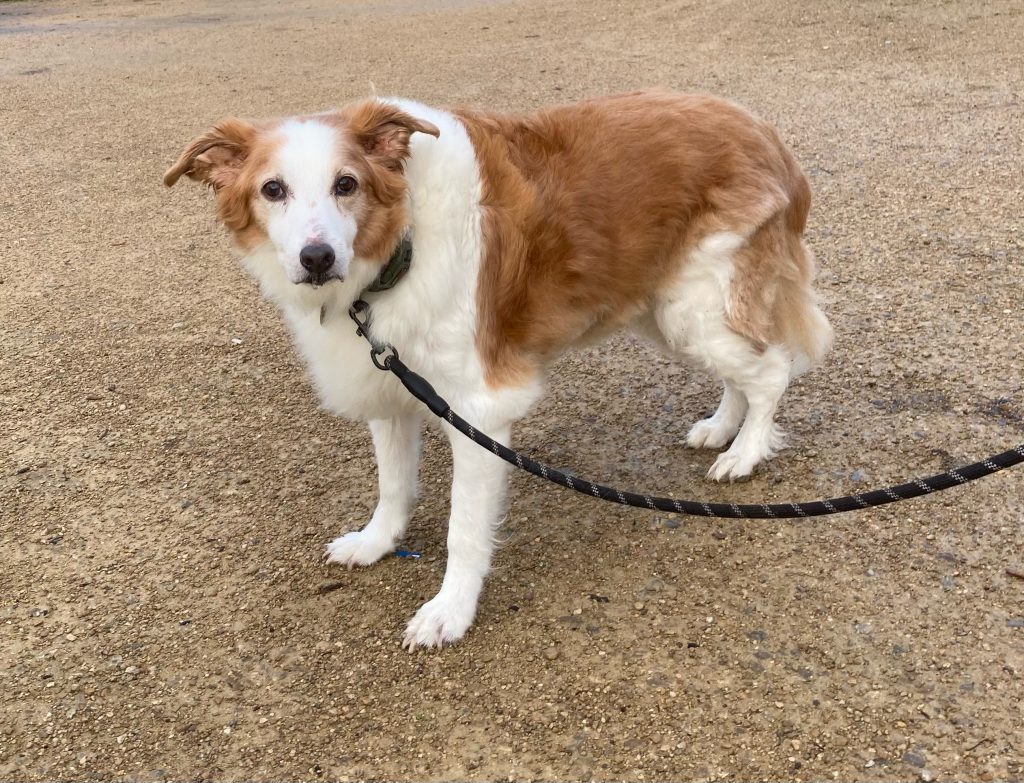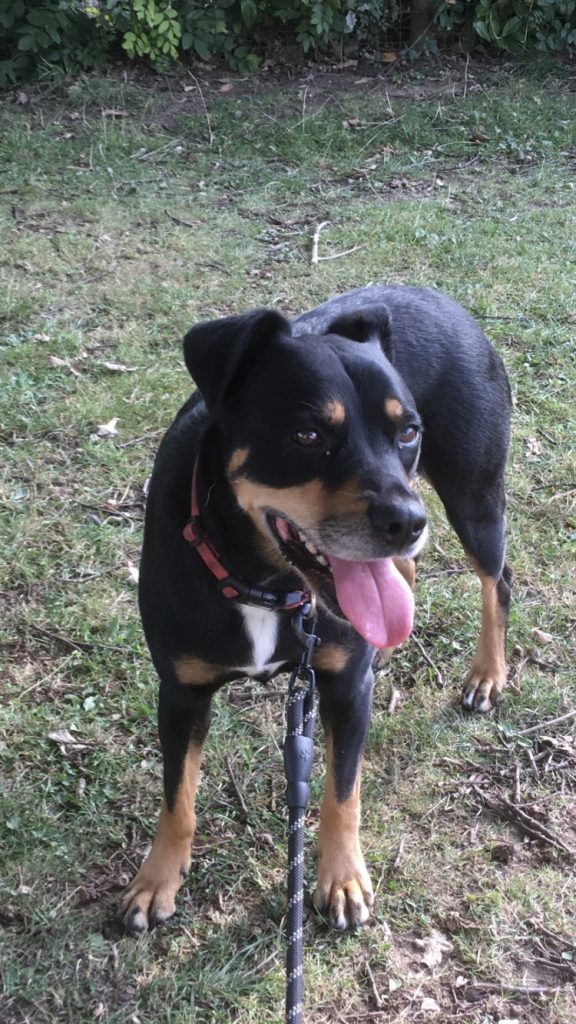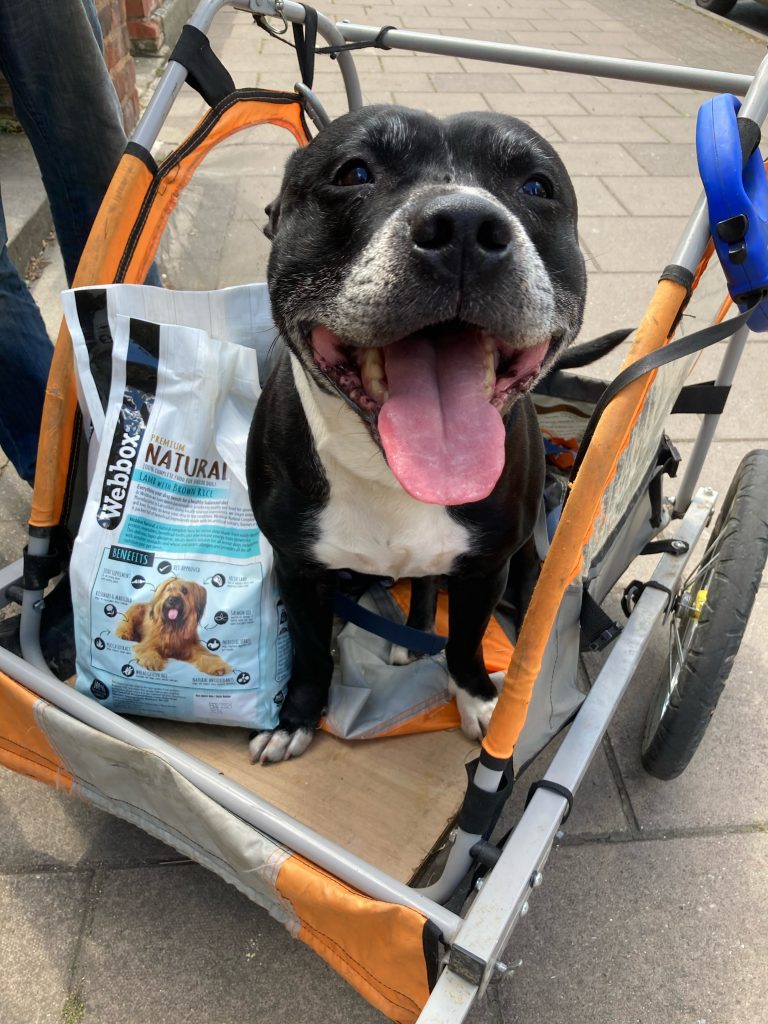Imagine having to choose between somewhere warm to stay or keeping your pet. That’s the predicament that many homeless people face.
Tim Sandys BVSc MRCVS, a volunteer vet for StreetVet, understands this choice better than most. He works with the homeless community in Gloucester, providing care, food and support for their pets.
Although Tim’s work is based in Gloucester, StreetVet has 17 locations around the UK, including the latest in Aberdeen. Every location has its unique challenge, but all work towards the same goals. The vets and vet nurses are volunteers and the service they offer is free; they get support from vet practices, pet food suppliers and public donations to carry out their work.
As well as regular veterinary outreaches on the streets, the StreetVet team of vets and nurses provide access to 24/7 emergency support. In Tim’s case, as with many others, he balances part-time work in a practice and child-care commitments with volunteering.
So to get a better understanding of the work, challenges and opportunities of StreetVet, I interrupted Tim’s homeschooling for a quick chat.
How did you first find out about StreetVet?
I was at a veterinary conference and saw the StreetVet stand – and immediately thought ‘what’s that?’ The next thought was about whether I could bring it to Gloucester.
I knew that I wanted to do something to help people experiencing homelessness in this area, I just didn’t know what or how I could be of any use to them. Fortunately, StreetVet was the perfect way that I could use my skills to help them and their pets. Soon after, we were setting up StreetVet Gloucester and we’ve now been running here for two years.
How does your work with StreetVet Compare with working in a vet practice?
Practice work is structured. You’ll see clients, and it’ll be next, next, next. With StreetVet, you’re more aware of the wider picture – building a relationship with homeless people and their dogs.
In practice, you might only see an animal once a year, for a booster jab or check-up. In some cases two or three if we’re managing a condition. On the streets, you don’t wait for there to be a problem, we go out regularly and meet the same people – providing preventive care, giving dog food and treats.
This builds trust, as they can then say ‘hey, you’re the nurse who gave us treats’. So that relationship is hugely important.



How did working with StreetVet change your own perceptions of the homeless and their pets?
What has struck me most, during the last two years, is that the owners often take better care of their animals than themselves. So if there was a choice between them having food or their dog having something to eat, most would prioritise their dog. That’s how strong the bond is between the people and their animals.
Working with them, you understand how difficult it can be for them to access emergency and hostel accommodation with their dogs. I think this is a side that most people don’t see, or perhaps fully appreciate.
How has StreetVet been able to support and change the lives of homeless people in the city of Gloucester?
Before StreetVet, where would they go? With lockdown currently, there’s no real alternative for homeless people with pets.
Other charities, hostels and support structures exist for the homeless people in Gloucester; StreetVet work alongside these organisations to enable them to be accessed by those people with pets. We continue to provide that support all year round.
Of course everybody would like to have free veterinary care for their pets, so we have a clear policy. We function to support people experiencing homelessness, and their pets. This gives us a clear focus.
There was a recent case where a man had to go into hospital, for an extended period of time – including in ICU. We were able to arrange care for the dog for the entire duration, and until he was well enough to look after his dog again. So the owner knew he would be waiting, and well looked after, when he came out. Indeed, he told us that his dog was the first thing he thought of when he regained consciousness, which shows the power of the bond between people and their pets.
In the past, people would have to make a choice between going into hospital and risk losing their pet OR not getting the treatment they need. So providing that support is hugely important and rewarding.
How has it been working through the pandemic and the various lockdowns?
It has been a challenge. During the first lockdown; I had to juggle home-schooling, my other work and continuing to provide on-call support for our StreetVet patients. Like everyone else, we have had to adapt. Since July, we’ve been able to restart our weekly outreaches as a team of vets and nurses, in a COVID-safe way, so that’s taken some of the pressure off me personally.
As a team, we’ve moved from hosting a weekly drop-in clinic within a small room at a homeless support centre, to doing everything outside. Whether it’s cold, wet or flooding (literally), we still have weekly outreaches and respond to emergency situations when they arise.
The need for pet food increased significantly. The lockdown restrictions made accessing shops difficult for many clients, so we’ve been supporting more of them, by supplying dog food.
What are the major challenges you face during winter, particularly?
Winter is difficult.
We have to adapt. During the recent flooding in Gloucester, some of our clients were uprooted and so getting back in touch was difficult. Some lost phones and other means to contact us, which again caused problems. Thankfully, we are in touch with them all again now.
But it is, by its nature, very changeable. We have to be ready to adapt.

What are the big challenges you’re facing?
We are working with more clients who have lost their jobs and homes. During the pandemic, there have been bans on landlord evictions, and employment support through furlough. What that looks like going forward remains unclear. But in Gloucester, as with other parts of the country, there has been an increase in homelessness and that trend seems likely to continue.
When you think that last year, 20-25% of adults in the UK had a dog, inevitably more pets will become homeless too – with their owners. More puppies have been bought during lockdown, so that is going to contribute to future problems.
But, as we’ve seen, that bond between our clients and their pets is unbreakable despite circumstances.
We are well supplied with products for StreetVet, including food and some medicines donated to us. Local vet practices help us deal with cases that need hospital or surgical treatment. People also buy products from our Amazon Wishlist, which helps us to provide care. In winter, the most popular products are usually blankets and dog coats.
As volunteers, how have you been affected?
We are lucky that StreetVet has a team of hundreds of dedicated vet and nurse volunteers. Most have remained active. But some have been impacted by redundancy, furlough and forced to move elsewhere for work or family. So while we still have a strong team, the impact on staffing has been noticeable across StreetVet.
Here, we’ve also had to be reactive to changes in rules and COVID restrictions. Going from working in a clinic room, to doing all of our work outside, brings its own challenges. Thankfully, our patients have become used to seeing us wearing PPE and taking them a social distance away from their owners.

What support do you receive?
Support is available across the StreetVet group. We were fortunate enough to win the Purina BetterWithPets award last year for our StreetVet Accredited Hostel Scheme. This goes towards improving our service and the hostel scheme. We receive food from Webbox, among other donations, which helps us to support clients.
Again, there’s the Amazon wishlist where we can identify products that we’re in need of and of course public donations to StreetVet. All of this goes towards helping the homeless and their animals.
If you could make a change, based on what you see every day, what would it be?
That no person would have to make a decision between having a roof over their head or a pet at their side. More landlords allowing pets would be transformative for the homeless community.
We want to help people to get off the street, or to stop them entering homelessness in the first place. This pandemic is a big opportunity, with the way the world has changed, to provide lasting change through government legislation.

Summary
Firstly, thanks to Tim for taking the time to speak with us. He did ask me to emphasise that although he was providing a perspective from his work in Gloucester, there are 17 locations in the UK offering the same service and support. It’s very much a team effort.
Equally, that team is made up of volunteers. These are trained vets, nurses and experts giving up their time to support animals on the streets. They couldn’t do that without the support of the public, pet food supplier, donations of medicine and other essentials.
It’s probably worth mentioning that this was supposed to be a ‘day in the life of…’ But after a couple of minutes talking, it was pretty evident no two days are the same. From providing shelter and reassurance for the pets of homeless people requiring hospital care, to working through flooding and the current pandemic. Not every story has a happy ending, but clearly this work is keeping pets safe, well and with their human companions.
The last message, and one that is repeated with everyone we’ve spoken to at StreetVet, is the most important – nobody should have to choose between shelter or their pet. Fortunately, with schemes like the StreetVet Accredited Hostels, this is changing.
If you’d like to learn more about StreetVet, including details on how to volunteer or donate, please visit their website – https://www.streetvet.co.uk/

Discussion